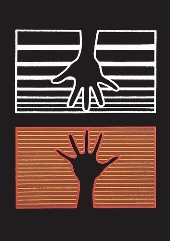Today is an incredibly important day in the history of Australia.
This is the apology that will be made to Australia’s Indigenous community in Federal Parliament, Canberra, today.
Today we honour the Indigenous peoples of this land, the oldest continuing cultures in human history.
We reflect on their past mistreatment.
We reflect in particular on the mistreatment of those who were stolen generations – this blemished chapter in our nation’s history.
The time has now come for the nation to turn a new page in Australia’s history by righting the wrongs of the past and so moving forward with confidence to the future.
We apologise for the laws and policies of successive Parliaments and governments that have inflicted profound grief, suffering and loss on these our fellow Australians.
We apologise especially for the removal of Aboriginal and Torres Strait Islander children from their families, their communities and their country.
For the pain, suffering and hurt of these stolen generations, their descendants and for their families left behind, we say sorry.
To the mothers and the fathers, the brothers and the sisters, for the breaking up of families and communities, we say sorry.
And for the indignity and degradation thus inflicted on a proud people and a proud culture, we say sorry.
We the Parliament of Australia respectfully request that this apology be received in the spirit in which it is offered as part of the healing of the nation.
For the future we take heart; resolving that this new page in the history of our great continent can now be written.
We today take this first step by acknowledging the past and laying claim to a future that embraces all Australians.
A future where this Parliament resolves that the injustices of the past must never, never happen again.
A future where we harness the determination of all Australians, Indigenous and non-Indigenous, to close the gap that lies between us in life expectancy, educational achievement and economic opportunity.
A future where we embrace the possibility of new solutions to enduring problems where old approaches have failed. A future based on mutual respect, mutual resolve and mutual responsibility.
A future where all Australians, whatever their origins, are truly equal partners, with equal opportunities and with an equal stake in shaping the next chapter in the history of this great country, Australia.
You can find out more about the apology and the stolen generations by reading the Wikipedia article, Stolen Generation.
Do you think some of your friends would enjoy reading Sorry? Please use the buttons below to share the post. Thanks.
 For almost two decades Gina Williams has been dedicated to the telling of stories; both her own story and the story of her people.
For almost two decades Gina Williams has been dedicated to the telling of stories; both her own story and the story of her people.
 The gap between the health of Indigenous Australians and the rest of our population is a scandal. Aboriginal and Torres Strait Islanders have a life expectancy 17 years less than other Australians.
The gap between the health of Indigenous Australians and the rest of our population is a scandal. Aboriginal and Torres Strait Islanders have a life expectancy 17 years less than other Australians.